Degenkolb on motivation, monuments and life without Kittel
German picks Kristoff as biggest rival
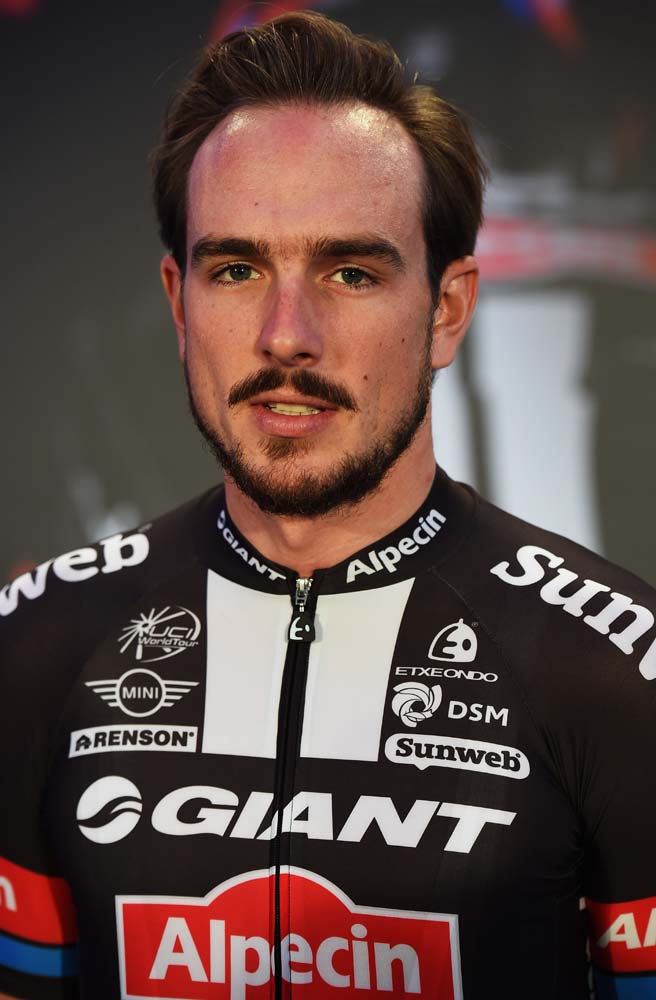
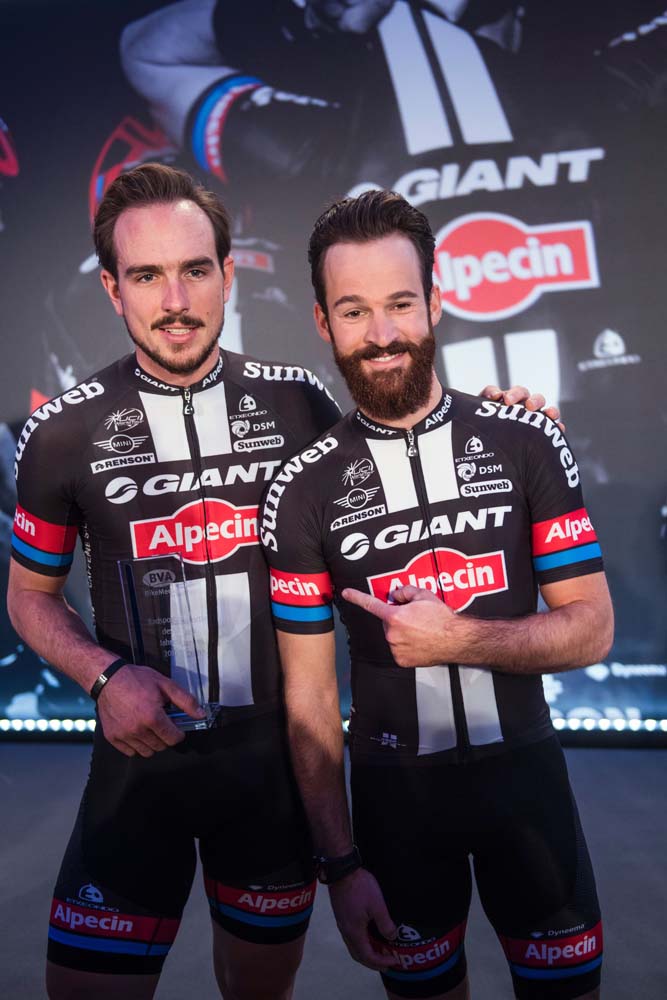
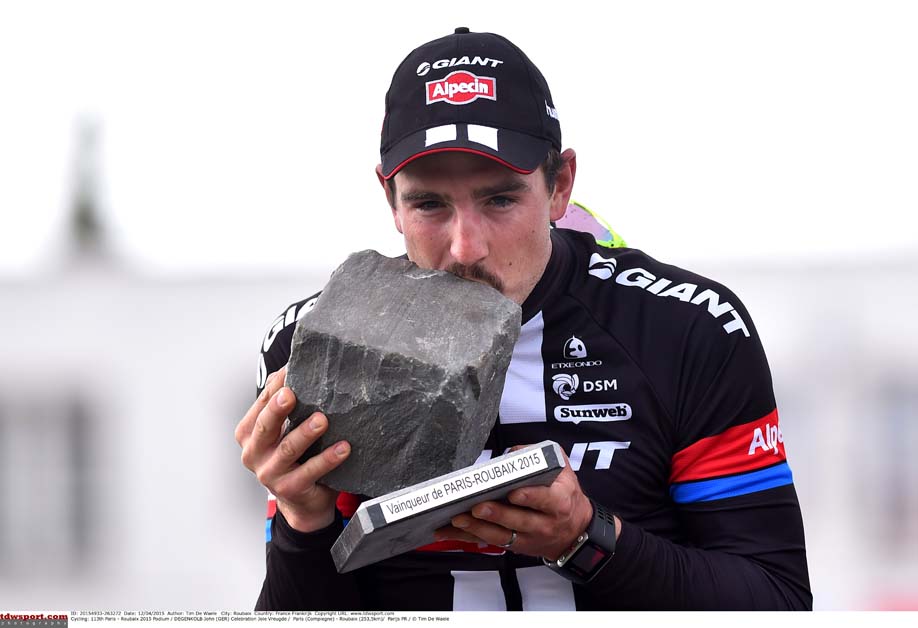
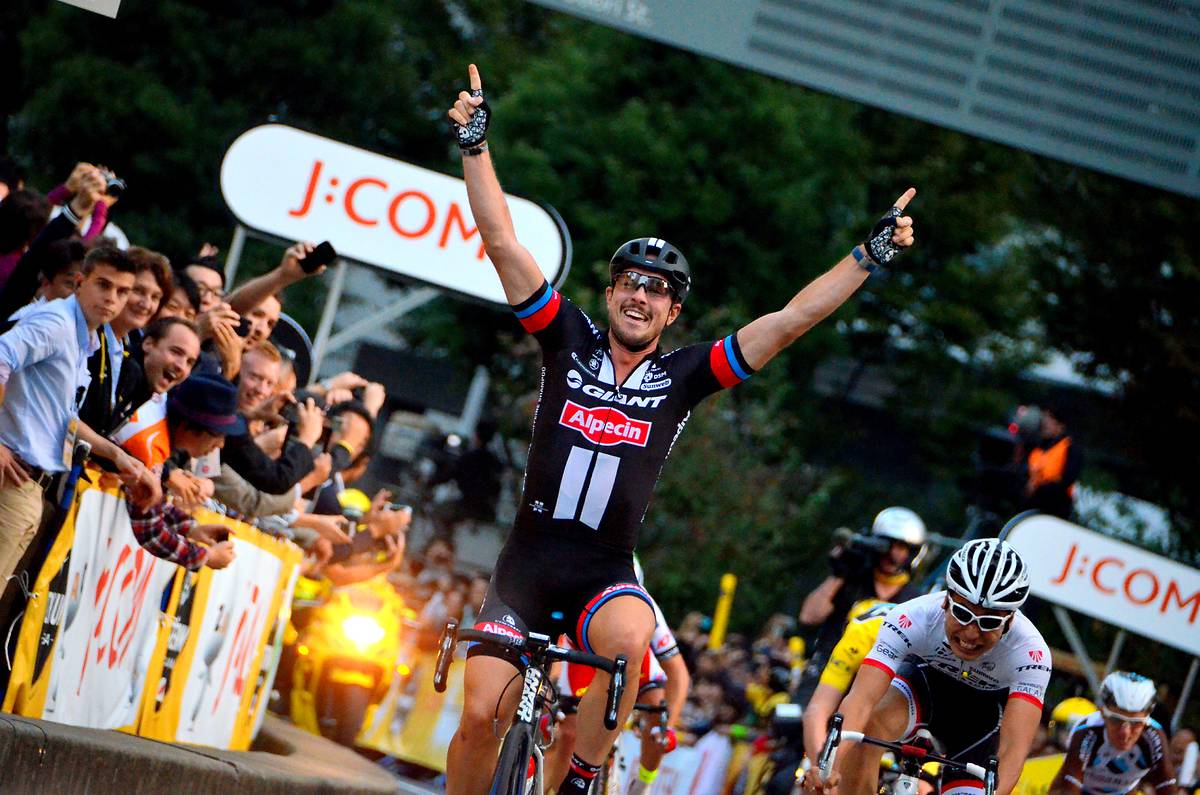
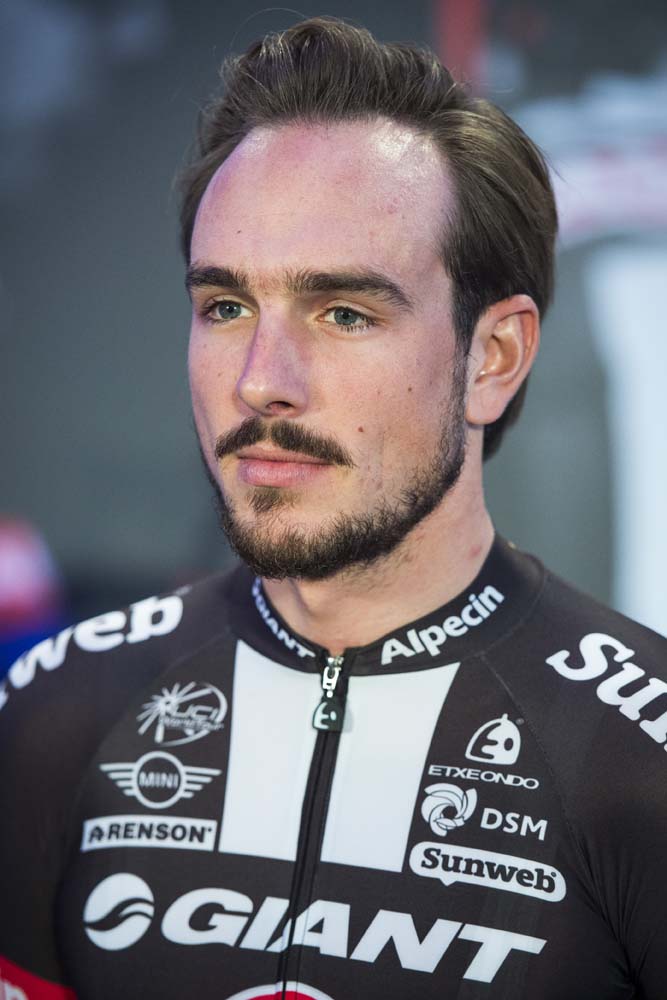
Berlin in January and spring feels a million miles away. Low cloud suffuses the city from Alexanderplatz to the Brandenburg Gate, Unter den Linden is flanked by icy stacks of sludge and the dead leaves of the Tiergarten are shrouded in a crisp white layer of snow.
Across the road from the wintry municipal park, however, there is a hint of warmer days. The Giant-Alpecin team presentation has drawn to a close in the Italian Embassy, and the boys of summer (and spring) are now earnestly outlining their ambitions for the year ahead to the waiting press.
One by one, riders quietly slip away from the melee, their duties to sponsors fulfilled, but almost three hours after the conclusion of the ceremony, John Degenkolb is still dressed in his team kit, holding court on a couch in his booming voice.
Winner of Milan-San Remo and Paris-Roubaix in 2015, Degenkolb received Germany’s Rider of the Year award during the presentation and has been fielding questions from an expectant home press since the lights went up, but he betrays no sign of irritation when asked to go through the process all over again for a small group of international reporters.
“A day like this is very busy and very exhausting but I think it’s also necessary. It’s just a part of the sport,” Degenkolb says of the additional demands brought about by last year’s success and by being the German star of the lone German WorldTour team.
Those victories on the Via Roma and the Roubaix velodrome were Degenkolb’s first in Monument classics, and he is aware that for the rest of his career, external expectations have been irrevocably recalibrated. As Fabian Cancellara or Tom Boonen could doubtless tell him, from now on any Spring campaign that passes without a Monument victory will, rightly or wrongly, be deemed something of a failure, but Degenkolb appears unfazed by the pressure.
“The fact that you start with number 1 on your back means it will be different than before but I wasn’t an unknown name before last year either – there were some guys watching me – so the situation isn’t so different,” Degenkolb says, having dismissed out of hand the notion that 2015 might have sated his appetite in the Classics: “With these kind of victories, you now know what the sacrifices are worth, so it gives me a big boost to go and be on an even better level in the classics this year.”
Get The Leadout Newsletter
The latest race content, interviews, features, reviews and expert buying guides, direct to your inbox!
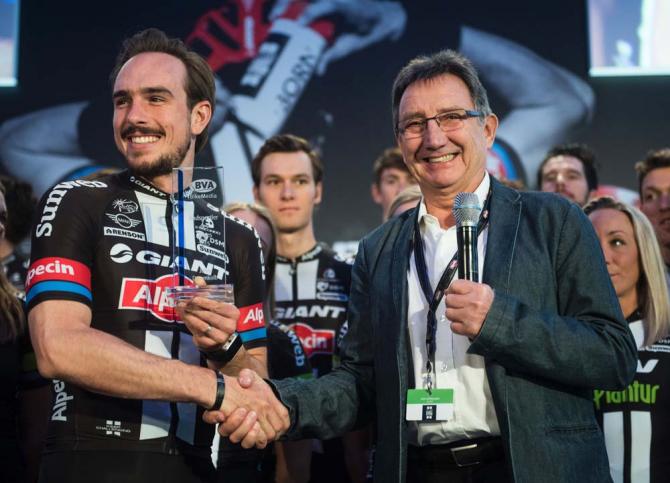
The old and the new
With both Boonen and Cancellara absent through injury, 2015 appeared to mark a changing of the guard in the Spring Classics, as Degenkolb and Tour of Flanders winner Alexander Kristoff (Katusha) stepped confidently into the vacuum. Still only 27 and 28 years old, respectively, the pair have the potential to dominate on the cobbles to the end of the decade and beyond. Boonen and Cancellara will undoubtedly rage against the dying of the light this April, but Degenkolb suggests Kristoff is likely to provide the stiffest opposition once again.
“Fabian and Tom are very inspiring for me. It’s great to see what these guys have achieved, and it shows also with hard work and constant work you can still be successful on the highest level when you are over thirty. That’s my goal, too, to become a champion as they are one day,” Degenkolb says.
“But the biggest contender for the future is Alexander Kristoff, I think. Peter Sagan, of course, is an outstanding athlete but he also still needs to prove in the Classics season that he can win the big races. Of course he won the world championships, no question, but so far he hasn’t won a classic yet.”
Not that Degenkolb envisages Flanders or Roubaix as being simply a prize fight against his fellow heavyweight Kristoff. Unlike the past decade, where Boonen, Cancellara and their teams have tended to dictate terms on the pavé, there is arguably a wider spread of genuine contenders backed by solid teams. To the aforementioned rivals, he adds the names of Greg Van Avermaet and Sep Vanmarcke.
“I don’t think we [Giant-Alpecin] need to stress ourselves to be the team that has to do all the work in the classics,” he says. “There are really a lot of big names for the classics season and the pressure will be divided in the end. I’m really optimistic about that.”
Degenkolb’s build-up to the classics will see him start his campaign at the Dubai Tour and Tour of Qatar, throttle back for a couple of weeks of endurance training – “You need to refuel your batteries,” he explains – before a final blow-out at Paris-Nice. From there until the second Sunday in April, the schedule is simple. Monument, rinse, repeat.
“I’ll try to be on 100 percent from San Remo to Roubaix,” he says, dismissing the idea that he was prioritising the Tour of Flanders above all other races this spring. “The nice thing is that you have three monuments and all three of them have completely different characters.”
Kittel
On the corresponding morning in Berlin year ago, Degenkolb had a foil at Giant-Alpecin’s pre-season media day in the shape of Marcel Kittel, but after a listless and troubled 2015 campaign, the sprinter rescinded his contract and left for pastures new at Etixx-QuickStep.
The evening before the presentation, a representative from sponsor Alpecin, guardedly conceded that the loss of the immaculately coiffured Kittel was a disappointment for the German shampoo manufacturer, but insisted it had been offset by the exploits of Degenkolb in the spring, Simon Geschke at the Tour and Tom Dumoulin at the Vuelta a España.
While the departure of Kittel and number two sprinter Luka Mezgec means that Degenkolb will be the team’s nominal fast man at the Tour de France (as indeed he already was in 2015), in real terms, with Warren Barguil on hand, setting up bunch sprints is no longer the raison d’être for Giant-Alpecin in July: Degenkolb will seek his maiden Tour stage win on the more selective sprint days.
“On the sporting level, it’s doesn’t really change anything,” Degenkolb says of Kittel’s transfer. “In terms of friendship, of course, it’s not nice not to have him on the team anymore. I was always good friends with him and I’m still good friends with him.
“We will have some nice sprints against each other now, I think, and that brings up some memories from the past. We first sprinted against each other when we were 15 or 16. Then as juniors we raced together, I went to his club and at that time, I was more of a sprinter than he was. But he had the time trial power and was double world champion in time trialling.”
Regardless of where they lock horns early in 2016, the former teammates will look to row in the same direction at the World Championships road race in Doha. On the pan flat parcours, Germany appear to have a surfeit of options, with Degenkolb, Kittel and André Greipel all potential winners.
“We can definitely fit altogether in one team and as long as we are honest with each other and work for each other, there is no problem,” Degenkolb says. “I had the opportunity and the honour to be captain in Richmond. If it’s different in Doha, and we go for André or Marcel, for example, I have absolutely no problem to give 100 percent for them.”
By then, the thorny matter of Degenkolb’s own future should be resolved. His contract with Giant-Alpecin expires at the end of 2016 and as he reaches his prime, his next payday will likely be the biggest of his career. Certainly, the combination cycling’s gradual restoration in his native Germany – Europe’s largest economy – and his uncomplicated ease in the spotlight means that Degenkolb should have no shortage of interested suitors among the sport’s largest sponsors. Asked if he is likely to stay put at Giant-Alpecin, Degenkolb plays a relatively straight bat.
“Good question! If I knew that answer so easily I would have signed something already. But right now there is not an agreement yet. We have really good conversations and talks and meetings and everything but it’s not decided yet. We’re both looking at it,” he says. “I think it’s not influencing my performance and preparation now. And we’re also still at a time of year where we don’t need to worry. It’s still very early and there will be a decision in the next months.”
And with that, Degenkolb is ushered away to squeeze in one last photo shoot before a quick dash to Tegel airport to catch a flight south to Giant-Alpecin’s pre-season training on the Costa Blanca. Spring draws a little closer.

Barry Ryan was Head of Features at Cyclingnews. He has covered professional cycling since 2010, reporting from the Tour de France, Giro d’Italia and events from Argentina to Japan. His writing has appeared in The Independent, Procycling and Cycling Plus. He is the author of The Ascent: Sean Kelly, Stephen Roche and the Rise of Irish Cycling’s Golden Generation, published by Gill Books.